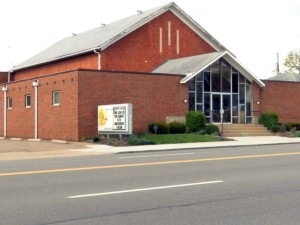With 20 confirmed cases, nine others showing symptoms, and the tragic death of Kim Shaw, lots of questions remain in the botulism outbreak linked to a potluck dinner at Cross Pointe Free Will Baptist Church. Like what food led to the illnesses? And preliminary analysis, according to the Columbus Dispatch, isn’t conclusive.
Twenty cases of botulism have been confirmed among those who attended the potluck at the Cross Pointe Free Will Baptist Church on Sunday, said Ohio Department of Health spokeswoman Michelle LoParo.
The foods that have preliminarily tested positive for botulism were three samples of potato salad, one sample of potato salad with egg, one sample of spaghetti pasta salad and one sample of macaroni and cheese, LoParo said.
The food samples, however, were taken from trash bags where other food was mixed in, likely resulting in cross-contamination, she said. Investigators will continue to try to pinpoint the source, LoParo said.
The state received more than 20 food-related samples from the Fairfield Department of Health, said Matt Giljahn, a spokesman for the state health department. The foods included home-canned items: beets, vegetable soup and two samples of pears.
